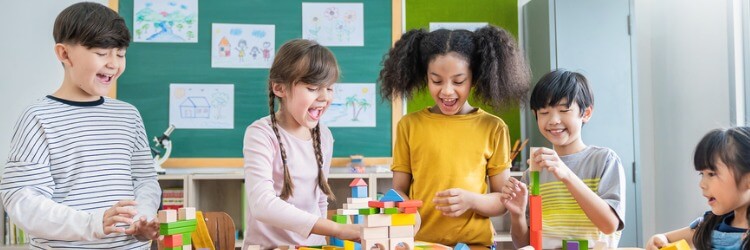

As an educator, your focus is on ensuring your students meet set standards in subjects like history, science and language arts. While academic proficiencies are certainly important, the emotional and social lessons children learn throughout their school years are arguably just as critical.
Studies have long indicated that the development of social and emotional skills can positively affect student achievement and success — both academically and socially — in school and later in life. A study conducted by Loyola University researchers found that social and emotional learning improves academic achievement by an average of 11 percentile points. It is also proven to improve positive social behaviors such as kindness, sharing and empathy, and also improves children’s attitudes towards learning.
Teaching social skills, however, is not always the easiest task. Unlike other academic subjects, there aren’t textbooks to refer to or rubrics to grade with. The abstract nature of social and emotional skills makes it a unique discipline to teach, but not an impossible one — read on for a breakdown of the top social skills and our tips for teaching them in the classroom.
The American Psychological Association (APA) defines social skills as “a set of learned abilities that enable an individual to interact competently and appropriately in a given social context.” In simpler terms, social skills are what people use to successfully interact with others. It is important to note that social skills include both verbal and non-verbal communication, and strong social skills are demonstrated by a person’s ability to successfully live, work and understand others.
Why is it important to have good social skills? To be blunt, social skills are essential for humans to lead fulfilled lives; social skills allow you to work with others, resolve conflict and build and sustain relationships. This makes teaching social skills such a vital function of our education systems, and equipping teachers with the tools they need to teach these skills is even more necessary.
Top 12 Social Skills Kids Need
| Sharing | Cooperation | Listening | Following Directions |
| Personal Space | Eye Contact | Manners | Self-Awareness |
| Self-Management | Social Awareness | Relationship Skills | Decision-Making |
Use our handy 3-page Classroom Management Template to create a plan for everything that goes into successfully operating a classroom.